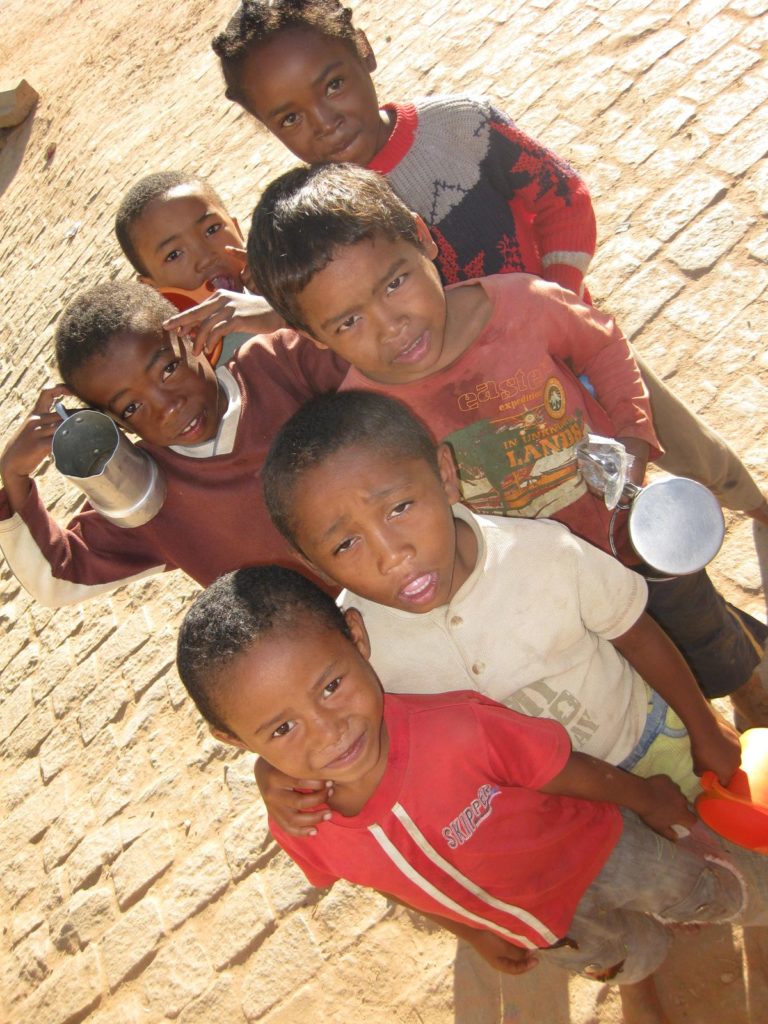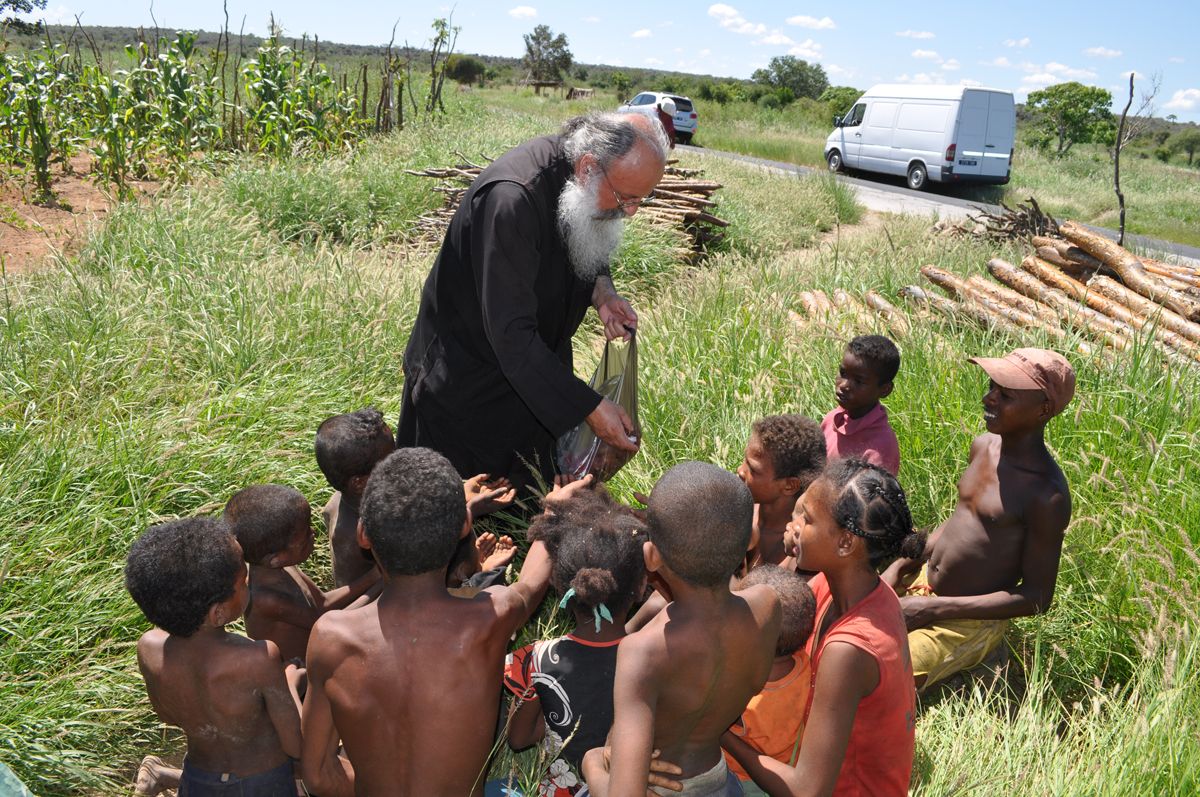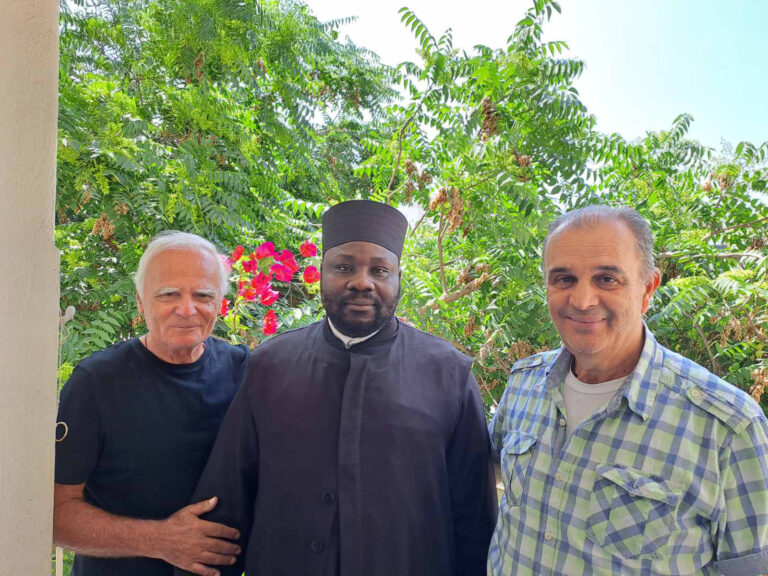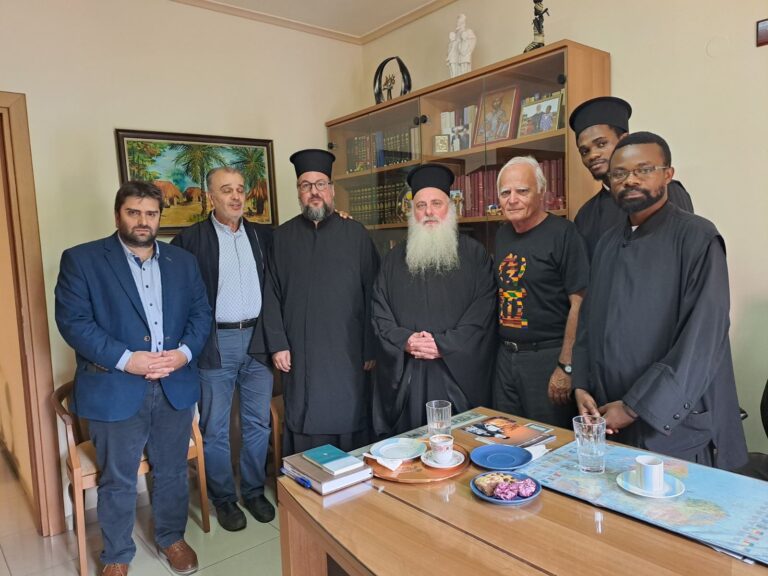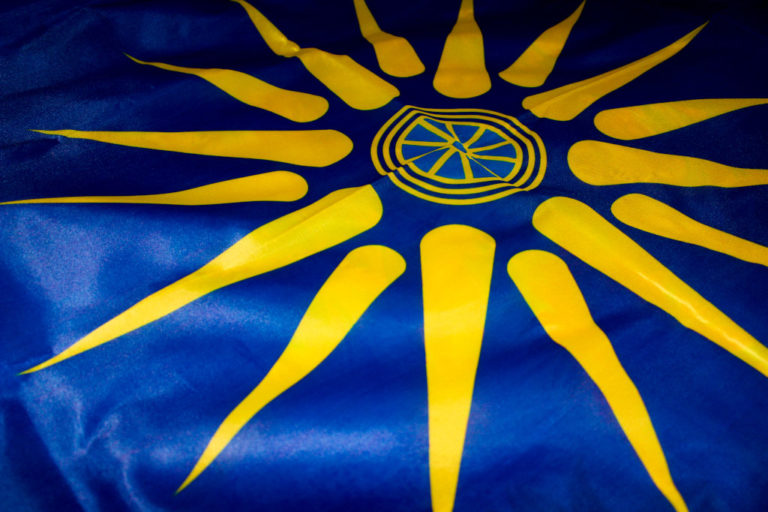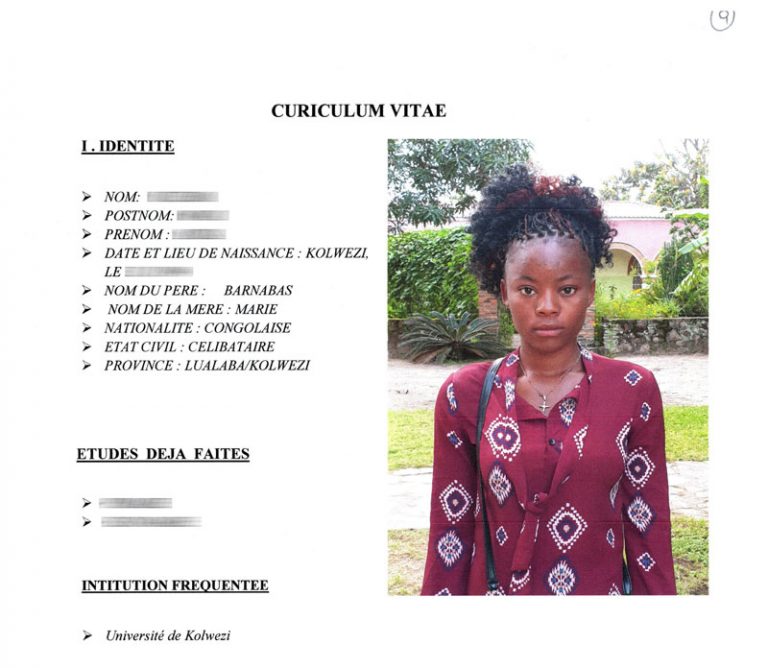Urgent signal: our missionaries are in great need of partners
Anyone who visits one of our missionary teams in Africa and Asia is struck by two situations: In the very first days of their stay there, they notice the intense rhythm of missionary and charitable activities with a parallel rapid increase in the number of Orthodox new believers. Baptisms take place frequently in all countries where Orthodox missions operate, holy churches, Orthodox schools and medical clinics are built, thank God, one after the other, soup kitchens operate, to offer love and food to hundreds of hungry people of the earth – and even to young children – and all this thanks to the love and financial support of Missionary Fraternities, Associations, Groups, which with the touching offers, donations, contributions of their members and friends in Greece, Cyprus and Australia build and financially support the Orthodox presence in Africa, Asia, Central America. This is one side of the living reality in our Missions where ever they are. A picture that is blessed, optimistic, hopeful. The peoples seem to be hungry for the Truth, for the true Saviour Christ, far from misunderstandings, distortions, expediencies, misleading promises for the salvation of the people. But if the visitor stays for a few more days and follows the daily programme of our missionary there, he will also find another reality, which is less satisfactory, which is less optimistic and hopeful: it is the sad lack of collaborators – priests and laity – beside our missionaries. Finally, one is tempted to wonder whether the problem in our Orthodox missions in Africa, Asia and Central America is not so much financial as staffing these missionary teams, which with self-denial, with holy zeal, with heroism, we might say, create from scratch and sustain with too many difficulties some heroic figures of our contemporary Orthodox Church. The blessed Fr. Chrysostomos Papasarantopoulos, Fr. Chariton Pneumatakis, Fr. Athanasios Anthides, Fr. Kosmas Gregoriatis (Aslanides), Fr. Nektarios Kellis, as well as the still living metropolitans, now the Ven. Amphilochios Tsukos, Sotirios Trampas and Bishop Theoph. Ignatius Senni were resilient pioneers who left the comforts of their homeland and the conveniences of their ecclesiastical service in Greece and in Australia the latter Fr. Nektarios, took the great decision and went to places unknown to them, in dangerous areas, because in them the word of the Lord sounded awakening and shocking, “You have gone on making disciples of all nations, baptizing them in the name of the Father and of the Son and of the Holy Spirit” (Matt. 28,19). And despite their loneliness, despite their lack of basic comforts there in distant lands, despite the persecutions of foreign enemies and false brothers, they endured and preached Christ and Orthodoxy to the ends of the earth from Korea to Africa and Central America and built numerous Orthodox churches and baptized numerous Orthodox and filled the Orthodox churches with brothers and sisters of the Orthodox faith, all in the last fifty years.
Today we speak and not only feel but also bear witness to the dynamic presence of Orthodoxy in all corners of the globe from the Fiji Islands of the Pacific Ocean to Sierra Leone in Africa and Haiti and Cuba in the Americas. Today, the irreligious and irreligious do not look in dictionaries and encyclopedias to find out what the Orthodox Church is. Today in almost all countries there are Orthodox churches, Orthodox radio stations are heard, Orthodox books in English and French are published, and the Internet provides a wealth of information. Many non-Christians and non-Orthodox people are informed, are concerned and many take the big step of their lives: they come, “return” to Orthodoxy. The deadlocks of the Protestant denominations, the problems faced by the Catholic faithful in their area, the extremism of the Islamists contribute to the conversion of many souls who thirst for the Truth, who seek the true face of Christ the Saviour. And they find this in the Church of the Apostles, of the Great Fathers and Martyrs, in our Orthodox Church.
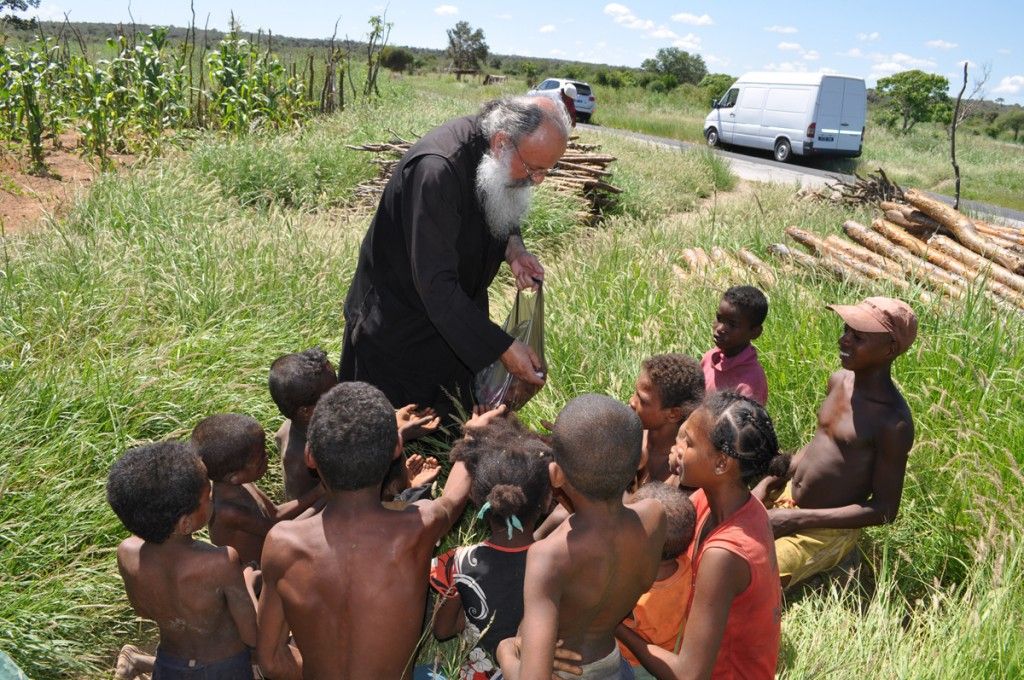
Writes Fr. Jonah from Taiwan: “Today (November 6, 2009) the door knocked and I saw some young Chinese who we had arranged to come and ask about mental prayer. They are all Catholic students… We said a lot and they asked a lot of questions. I told them what I knew, had read and heard from Fr. Porphyry about mental prayer. They stayed for 3 hours. I was impressed by their interest and that they prayed with mental prayer! They told me details …”. And when a few years ago, at the dawn of the new century, the well-known Byzantinologist Steven Runciman predicted that the 21st century would be the century of Orthodoxy, some people scoffed, others – the more troubled ones – thought the great English historian’s view was exaggerated. Today, only the first ten years of this unknown and restless century, we are increasingly finding that Runciman’s prediction may in the future prove to be a prophecy of the unexpected. But to this search for Truth in faith, to this longing of these benevolent souls for an encounter with their Saviour, how does our Orthodox Church respond? Great and overwhelming is the question. Here we cannot, we think, answer with confidence, with zeal in Christ, with even secret satisfaction at the sufficient presence of our Orthodox brethren in the great call of the Lord to “make disciples of the Gentiles…”. Here we think we should all observe a reverent silence, lest we should feel strong feelings of guilt. All of us living until recently in the modern society of abundance and comforts – a mentality and situation which we seem to be paying very dearly for in the future – are accustomed to our “shots” and our more or less guilty compromises, “otherwise ‘good’ Christians in our conventional ‘Christian’ social relations and, of course, consistent in our religious ‘obligations’ to attend Sunday church and perhaps attend some sermons and religious talks, shut up in the “shell” of ourselves and the closed circle of our families, we refuse to look at the great need of our Church, at the shocking timeless statement of our Lord “the harvest is plentiful, but the labourers are few” (Matt. 9,37) . And we may of course cast a glance at the “much harvest” and the great need for workers of the Gospel, but this glance is perhaps only in the missionary magazines and in the impressive photographs depicting the works and days of the heroic Orthodox missionaries there in distant lands. And so these our Orthodox missionaries are fighting the good fight alone or almost alone. Alone is Bishop Savas in the two countries of his ministry, Burundi and Rwanda, which are still troubled and dangerous regions. Alone is Fr. Jonah in Taiwan who teaches Orthodox theology in three universities on the large Chinese island, alone is Fr. Theologian in Branzaville, Congo, alone is Sister Nectaria who, with the help of some Indian priests, is doing great charitable and missionary work in Calcutta, India. Virtually alone is Fr. Themistocles in Sierra Leone, because the two or three African priests he has recently acquired are actually now also learning the Orthodox faith and worship.
And yet these heroic Greek missionaries need our help, not only our prayers (how often do we remember them?) not only our financial help, which thank God we provide in a touching way, it is true. Our missionaries also need Greek helpers in their work, they need hominational and homolingual collaborators, so that they can communicate more quickly, more confidentially, more effectively with their “own” people, to discuss with them the particular and often acute problems they face in the foreign land with the new converts, their brothers and sisters, but in any case foreigners and of a different culture, and therefore probably of a different mentality. But it is not only psychological reasons that impose the need for the presence of Greek collaborators near our missionaries. There are also spiritual reasons that dictate this need. Our missionaries need Greek Orthodox believers to catechize, as many as they can, to answer questions and queries of the catechumens, even the newly enlightened, to insist on teaching them to make the sign of the cross in an Orthodox manner, to teach them when to stand and when to sit at the Divine Liturgy and at other services of our Church, to read to them and explain to them some of our wonderful hymns, to sing in Greek the hymns of our Church, since very few of the Orthodox Hymnology is translated into foreign languages, and if it is translated, the Orthodox natives do not have the corresponding liturgical books in their possession. With all these forms of ministry to show them that they are beside them in their new journey, these great brothers of the Orthodox faith to their newly converted and younger brothers and sisters. These works cannot be done to perfection by perhaps the only missionary, so he needs partners. And first and foremost, of course, a Greek theologian could do the work of catechesis, but these missionary needs of the converts can also be met by a Greek believer and conscious member of the Greek Orthodox Church. Apart from these spiritual needs, however, our missionaries need partners for other, practical reasons as well. Soup kitchens, churches and schools are being built in the missions, and therefore the missionaries need trustworthy partners by their side, to monitor the good preparation of the food, the smooth operation of the soup kitchens, the performance of the local workers, to supervise those responsible for the cleanliness of the mission premises . The argument put forward by many is that these associates must necessarily know the local official language, English or French, in order to effectively assist the Greek missionary and communicate with the native Orthodox. Certainly this would be best, but, if we stop at this requirement, then it is certain that almost no Greeks will be found alongside the Greek missionary. And yet, Greek associates could help Greek missionaries even without knowing English or French, to meet all those missionary needs we have mentioned.
But where are the Greek collaborators of our missionaries?; Unfortunately there are none, or if there are, they are few and far between. And here one can see with regret the great void in our ecclesiastical life. And just as we were slow to begin missionary work in modern times – we did so only 50 years ago, despite the very extensive and very successful missionary tradition of our Church in Byzantine times – so now there is still a lack of cultivation of a missionary spirit in our Church and among its members, administrators and congregation, apart of course from a few exceptions. It was written a few years ago by Archbishop Anastasios of Albania, we think, that a Church without mission is a Church without mission. We asked a few years ago a young German who offered his services to the Catholic Mission in Kenya why he came to Kenya. And his answer was direct and clear: “I finished university and wanted to come for a year to help our mission before I started working.” And so useful was he to the Catholic missionary there that he immediately appointed him in charge of the Mission’s carpentry shop. And another young Italian, when asked the same question, answered accordingly: “I finished high school in my country and came here to help my Church in its mission for 3-4 months”.
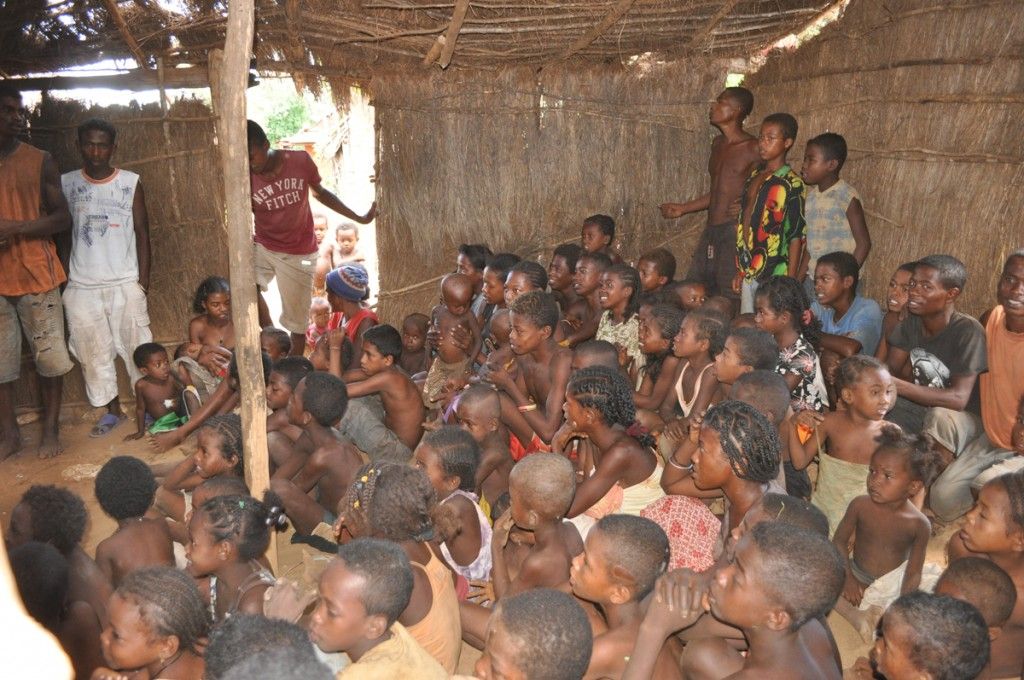
It is well known that the Protestant denominations and the Catholic faithful have for many years cultivated the need to offer not only financial aid but also personal ministry in their missions around the world, hence the millions of indigenous believers today. We have seen in the entrance or vestibule of Catholic, Protestant and Anglican “churches” abroad photographs and posters of the missionary teams “adopted” by their parishes, and we have heard their priests announce in their congregations the “news” from their fellow believers in Africa or Asia or South America. Thus the interest of their pastors is kept alive, fed by the good “news” and the “progress” of their distant homodox brothers and sisters, with the result that many young men and women of these parishes decide to serve as missionaries or lay associates of their missionaries in distant countries for longer or shorter periods of time. Our own heroic Orthodox missionaries are struggling alone or with few associates, and these too for limited periods of time. Where are the young graduates of the ecclesiastical high schools, of the Higher (Higher lately ) Ecclesiastical Schools, where are the unemployed graduates of the Theological Schools who remain unused by our Church? where are the young people of the church organizations to go for some periods of time to offer their theological knowledge, their singing ability, their youthful dynamism, to help our missionaries? Where are the retired theologians and other faithful scientists, doctors teachers, professors, nurses to offer their valuable knowledge to the front lines of Orthodoxy’s struggle to spread the saving message of Truth? Those of us who visit our Orthodox monasteries on Mount Athos and outside in the world, male or female, know how valuable a work they do for the faithful who visit them for spiritual help and stimulation, and we also know how busy the monks and nuns are every day with their ministries. We know that the monks and nuns of some monasteries and cells in our country are already serving in Orthodox missions around the world and doing great missionary, spiritual and charitable work. But they are few in number. But how much would the work of the Orthodox missions be strengthened if each monastery or two or three together felt the need to send one or two of their brothers or sisters from time to time and on a rotating basis accordingly, to specific missionary groups, so that they could teach Orthodox chanting to the Orthodox natives and Orthodox catechism and offer spiritual and mental stimulation to the Orthodox missionaries there? We know that the Holy Monastery of Saint Gregory of Mount Athos has for years responded to the Lord’s call in a continuous and effective way by sending its monks and friars to Colouezy in Congo, with the first missionary there being the blessed Fr. How much the perspective and outlook of the Orthodox monasteries of our country would be broadened and closer to the Lord’s command “Make disciples of the nations…” would be, if the example of I.M.In the last decades Greek cities have swelled and their populations have increased excessively, and consequently our parishes have grown in size, and therefore the pastoral needs are very great. That is why we see three or four or even five pastors in many large parishes.
Could these particularly large parishes “adopt” some missionary teams so that one of their priests could go for a fortnight or a month to their “adopted” missionary team accompanied by at least one or more lay faithful of their parish? The Parish of St. Euthymios in Keratsini, Attica, which maintains a charitable and missionary center with a rich activity, as we learn, is a good example close to possibly other parishes that act similarly, but for which we unfortunately have no specific information. And of course, how much better it would be if this cultivation of the missionary spirit and the organization of the mission of priests and other associates of our missionaries were undertaken by our Holy Metropolises, in which, with the blessing of the local Metropolitan and the establishment of an Office of Foreign Mission with a priest with a love for Foreign Mission in charge, the organization and coordination of all the missionary efforts of the Holy Metropolis would take place. Some Metropolises have already shown interest in this direction and help our missionaries both financially and by sending occasional priests and lay associates of our missionaries, but these cases are unfortunately few and far between. Of course, we know that the Holy Metropolises have many areas of activity, they are called upon to meet many pastoral needs and even more so now with the criticality of the economic, social and spiritual situations that our country is facing. We also mentioned above that the monks and nuns in our monasteries are in constant employment, and therefore a call for practical care for the needs of our Missionaries around the world, including by sending priests, monks and lay collaborators close to our Missionaries – especially in Africa – may sound strange, dissonant, unrealistic, unrealistic and utopian. Perhaps; but the Lord, in His words “the harvest is plentiful, but the labourers are few” (Mt 9,37), “Go ye therefore and make disciples of all nations” (Mt 28,19) and “Go ye into all the world and preach the gospel to all creation” (Mark 16,15), did not discriminate between times; His words are eternal and therefore always relevant. But are they also awakening for us today?
Konstantinos Christomanos
